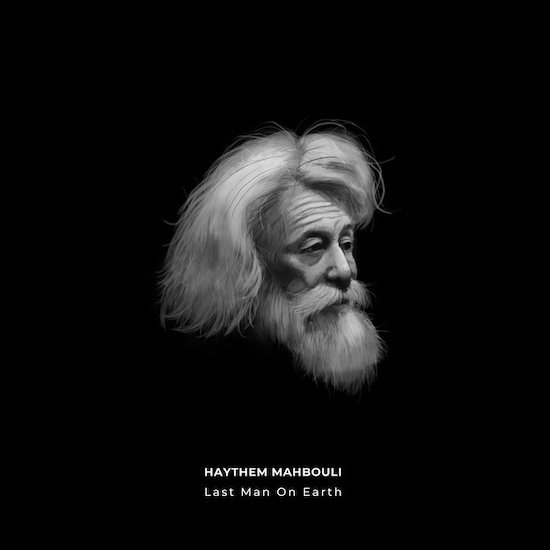Imagining and soundtracking humanity’s extinction has become an established theme in contemporary music, especially when it comes to long, instrumental pieces in a modern classical style. The latest artist to explore this topic is Haythem Mahbouli.
Born in Tunisia and raised with a love for heavy guitar sounds, Mahbouli was an active member of the country’s metal scene before relocating to Montreal in 2011 following the Tunisian revolution. There, he put his composing on hiatus and started working as a sound designer for video games, making a significant shift in his thinking about music.
When he resumed writing, his new approach led him to imagine music as an imaginary soundtrack for existence, with a cinematic nature and dramatic dynamics. Switching his guitar for a piano, his aim now was not to have an instrument-centred score but to blend each element into a smooth, organic composition, as wide as possible. And this purpose is undoubtedly met in his new album, Last Man On Earth, arriving three years (and a global pandemic) after his debut Catching Moments in Time, both for the prized Japanese label Schole Records.
Here, Mahbouli portraits the final moments in the life of the last surviving man on a wrecked planet Earth, creating a riveting, powerful accompaniment to a visionary and compelling story which manage to captivate the listener even if it’s apparently already been told numerous times. Of course, the mind immediately runs to Jóhann Jóhannsson’s (and Yair Elazar Glotman’s) Last and First Men. Yet, if the comparison is unavoidable at first glance, the Tunisian’s work proves to stand on solid ground.
The composer worked with The Budapest Scoring Orchestra, managing to record choirs and strings in the Hungarian capital. Being forced to resort to a remote Budapest – Montreal session for the brass didn’t invalidate the superb integrity of the sound. Where in Catching Moments in Time, Mahbouli’s piano was still slightly prominent over the orchestra, on Last Man on Earth there really isn’t a leading instrument; the whole ensemble fills the enormous soundscape that seems to envelope the listener from all around.
The thirty-six minutes of the album are split into eight seamless tracks projecting the listener into an alternative reality made of light and darkness, of din and whisper, of blurred words and deep thoughts. Even without the guide of the tracks’ titles, the masterful writing and execution convey the mood and place of this lone last wanderer on a dying planet, plagued by a doomed humanity that no longer is. It doesn’t take long for the listener’s heartbeat to get in sync with the music, until the dreaded last breath and word.


